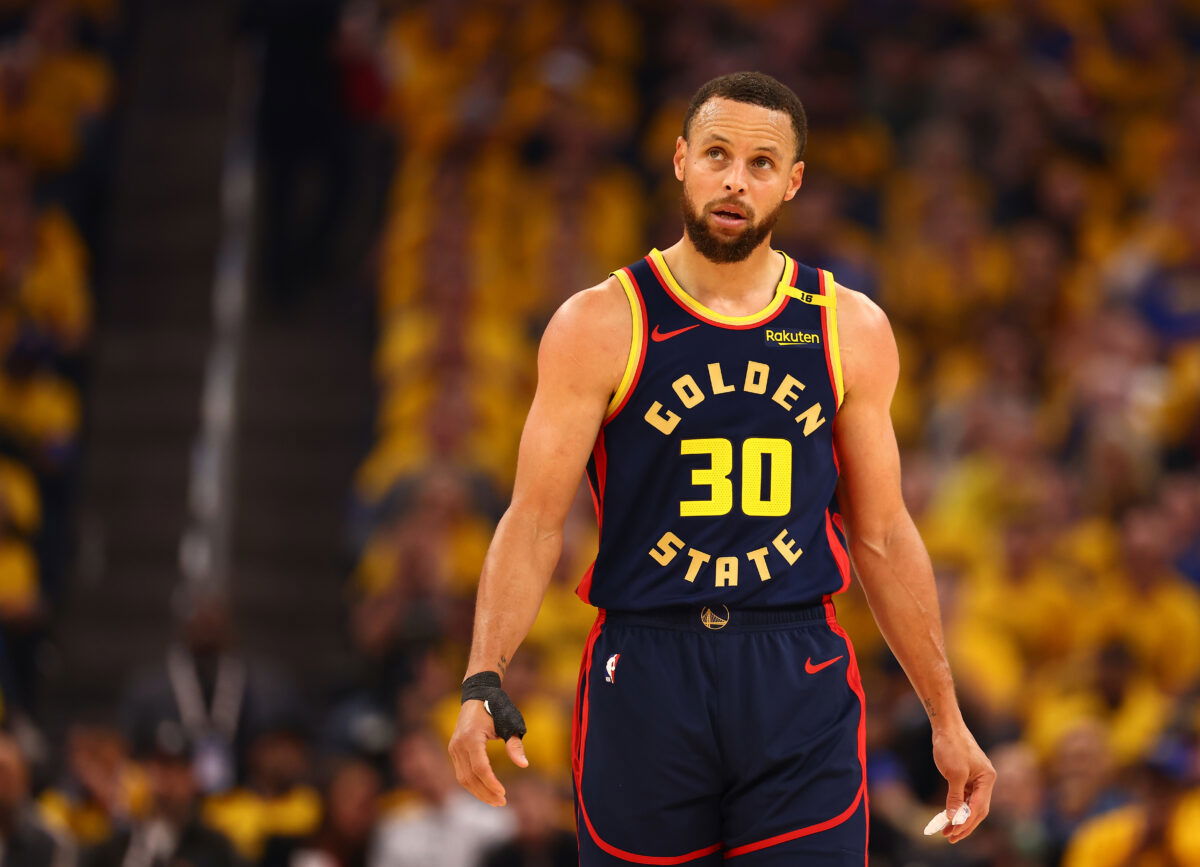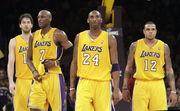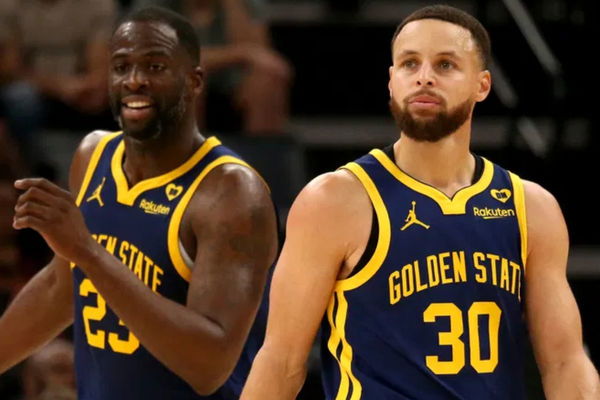
Imago
Apr 28, 2025; San Francisco, California, USA; Golden State Warriors guard Stephen Curry (30) between plays against the Houston Rockets during the first quarter of game four of the 2025 NBA Playoffs first round at Chase Center. Mandatory Credit: C

Imago
Apr 28, 2025; San Francisco, California, USA; Golden State Warriors guard Stephen Curry (30) between plays against the Houston Rockets during the first quarter of game four of the 2025 NBA Playoffs first round at Chase Center. Mandatory Credit: C
Guess what? The Chase Center emptied before the final buzzer in a playoff game. Yes, that Chase Center. Game 6. A potential closeout at home. And yet, fans were filing out before the clock expired. With Stephen Curry still on the floor and the Rockets in the middle of a 20-5 fourth-quarter run, the mood turned somber. San Francisco’s beloved arena was half full, and the scoreboard said it all: Warriors down, outgunned, and unraveling fast.
Watch What’s Trending Now!
The Warriors entered the fourth quarter down just two. Then came the collapse. A 1-for-15 shooting drought that looked more like a resignation than a resistance. By the time Golden State’s starters were pulled, the scoreline read 115-107 Rockets—but it felt over long before that. Chase Center wasn’t just quiet. It was quitting.
Rachel Nichols saw the exits in real-time and didn’t mince words. “I get it’s a big gap in the score but I never understand why anyone leaves early from a playoff game,” she wrote. “Like—this may be the last time you see Warriors basketball until October. It’s 8:38p in San Francisco. What else do you have to do that you can’t wait four more minutes?”
ADVERTISEMENT
Even Doris Burke, on the ESPN call, called the atmosphere “eerie.” Her voice dropped as she noted the “quiet” Chase Center—unusual for a team that once defined playoff noise. Former Warriors vet Richard Jefferson offered context, joking, “You know how hard it is to get here by 6 p.m. on a weekday in San Francisco?” But the undertone was clear: something’s changed.
And maybe the fans weren’t the only ones sensing it. On the court, the energy had vanished. Curry went 9-for-23. The rest of the starters shot a combined 3-for-18 from deep. The offense stalled, the defense folded, and the urgency never showed up. Then, after the buzzer, Curry finally addressed the elephant in the room.
“There were momentum plays that you want to have back… just couldn’t get over the hump,” he said. “You understand there’s pressure to win on your home floor… We’re fighting, we’re trying to compete.”
ADVERTISEMENT
He paused. Then added: “There are just some things in the margins we can do better. We’ve got to control what we can control.”
But for a team that used to control the chaos—home, road, first round or Finals—Game 6 felt like something else entirely. Like the end of a chapter. As Game 7 looms in Houston, one thing is painfully clear: The Warriors didn’t just lose home-court advantage. They may have lost the trust that used to come with it.
ADVERTISEMENT
Rockets rise, Warriors collapse, and Game 7 awaits
This wasn’t just a loss. This was a lesson.
The Houston Rockets didn’t merely force a Game 7—they dissected a dynasty in real-time. Fred VanVleet poured in 29 points with veteran calm, Alperen Sengun controlled the interior like a seasoned anchor, and Jabari Smith Jr. became the unexpected architect, spacing the floor and shredding Golden State’s defensive seams. For all the Warriors’ playoff pedigree, they were outclassed in movement, mindset, and motivation.
ADVERTISEMENT
But the story wasn’t just Houston’s execution. It was Golden State’s erosion.
Top Stories
Kobe Bryant’s Ex-Teammate Arrested Over DUI Charges

NBC Pulls Plug on Michael Jordan Plans After Contradictions Over $40M Payday

NFL Deepens Hesitation Around Unrivaled’s Caitlin Clark, Angel Reese Connection – Report

WNBA Fans Push Back on Natasha Cloud After Unrivaled Backup Plan Comments

Prayers Go Up for Jimmy Butler as Warriors Fans Panic After His Sudden Absence vs Hornets

Through three quarters, Houston notched 21 assists on 27 field goals. Ball movement wasn’t just a strategy—it was a statement. The Warriors, once the blueprint of fluid offense, looked stuck in slow motion. Their halfcourt possessions stalled into hurried threes and hesitant drives. They shot 1-of-15 to start the fourth, a statline that read more like surrender than struggle.
For seven minutes, the Warriors didn’t make a single field goal. Not one.
ADVERTISEMENT
The crowd saw it. Felt it. And then, they left.
This is a fanbase that once thundered through 30-point leads and blowouts alike. Now? A stunned silence. A quiet retreat. And a starting five that was pulled with over two minutes left, down 15 at home in an elimination game. Even Steph Curry—normally the last man standing in a storm—was benched, shoulders slumped, eyes glazed.
After the game, Curry didn’t spin. He didn’t deflect. Instead, he stared the moment down. “It’s tough, man,” he said. “We had the series in our hands. We just let it go.”
ADVERTISEMENT

Imago
Let it go.
It’s a phrase that cuts deeper than any stat.
Because four days ago, the Warriors led 3-1. They had Game 5 at home. They had a healthier roster. They had championship muscle memory. And now, they’re flying into Houston for a Game 7 that no one wanted to play—against a team that looks younger, sharper, and hungrier.
ADVERTISEMENT
The irony? This team has seen both ends of the 3-1 spectrum. The 2016 collapse. The 2016 comeback. But this feels different. Not just because they blew a lead, but because this time, they seemed to know it was slipping and still couldn’t stop it.
If Curry’s got another Game 7 miracle in him, now’s the time. If Jimmy Butler’s got anything left in his legs, it’s now or never. Because in every way that matters—momentum, mentality, and even the mood inside Chase Center—the Warriors no longer feel like the team with the edge.
They feel like the team is chasing ghosts. And the Rockets? They just believe.
ADVERTISEMENT
ADVERTISEMENT
ADVERTISEMENT
ADVERTISEMENT

